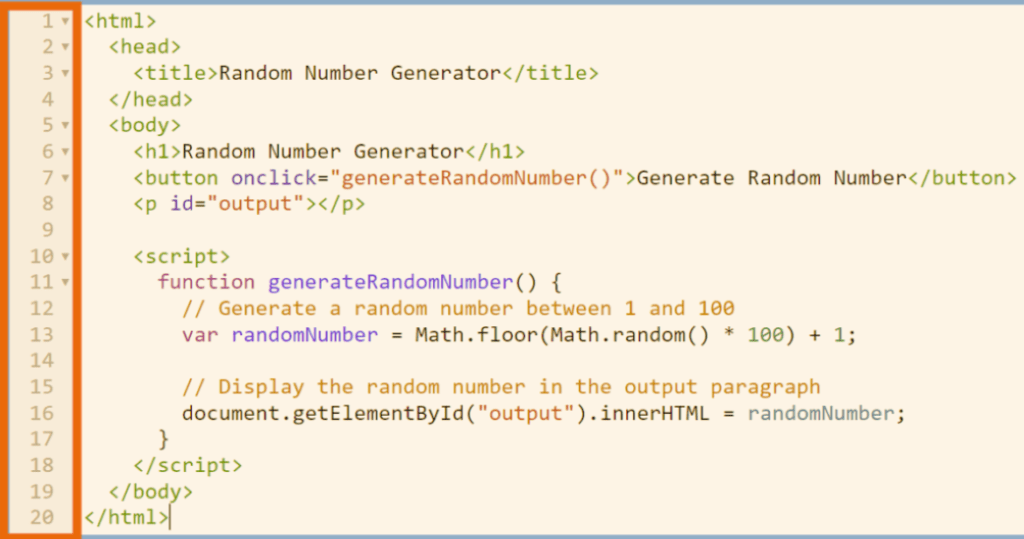Random Number Generator
Random Number Generator HTML Code
This is the actual code through which this basic random number generator is implemented

This is only a 20-line code through which a random number generator (RNG) with a range of 1 to 100 is implemented.
Introduction: Have you ever wondered how computers generate random numbers? From powering games to securing data, the magic of random number generation (RNG) is all around us. This blog post dives into the fascinating world of RNG, exploring its importance, types, and applications.
Why Random Numbers Matter: Random numbers are the backbone of fairness and unpredictability in digital environments. They ensure that every game is fair, every lottery draw is unbiased, and every encryption is secure. Without RNG, many of the digital services we rely on would not function properly.
Types of Random Number Generators:
- True Random Number Generators (TRNGs):
- Source: TRNGs generate numbers from physical phenomena, such as radioactive decay or atmospheric noise.
- Usage: They are often used in security applications where unpredictability is crucial.
- Pseudorandom Number Generators (PRNGs):
- Source: PRNGs use mathematical algorithms to produce sequences of numbers that only seem random.
- Usage: These are commonly used in applications like simulations and video games where high-speed number generation is required.
Applications of Random Number Generators:
- Gaming: RNGs determine the roll of digital dice, the shuffle of cards, and other random elements in games.
- Security: Encryption systems use random numbers to generate secure keys, ensuring that data stays protected.
- Science: Researchers use random numbers to simulate complex phenomena or randomly assign subjects to different groups in experiments.
Choosing the Right RNG: The choice between a TRNG and a PRNG depends on your needs:
- Security: Opt for TRNGs for tasks requiring high security.
- Speed and Efficiency: Choose PRNGs for tasks where speed is more critical than absolute unpredictability.
Conclusion: Random number generators are a hidden but integral part of the digital world. Whether securing data or powering games, RNGs ensure that digital processes remain fair and unpredictable. As technology advances, the role of RNGs will only grow, making our interactions with digital systems smoother and safer.
This peek into the random number generators reveals their critical role in our digital lives, from ensuring security to enhancing entertainment. So, next time you play a game or enter data securely, remember the unseen force of randomness that makes it all possible!
NOTE: This post is created ONLY for educational purposes.





Pingback: QR Code Generator: Make Your Life Easy with Free & Versatile QR Codes - Digital Digest
Pingback: Chromebook Guide: Discover the Benefits, Drawbacks, and Tips for Choosing the Perfect Model - Digital Digest